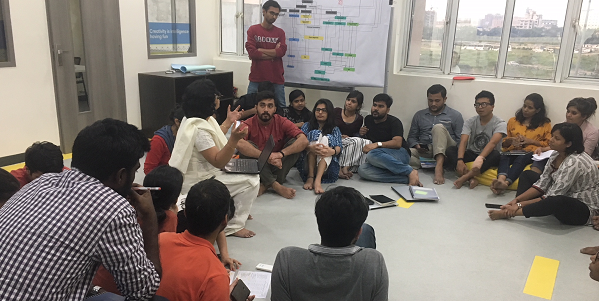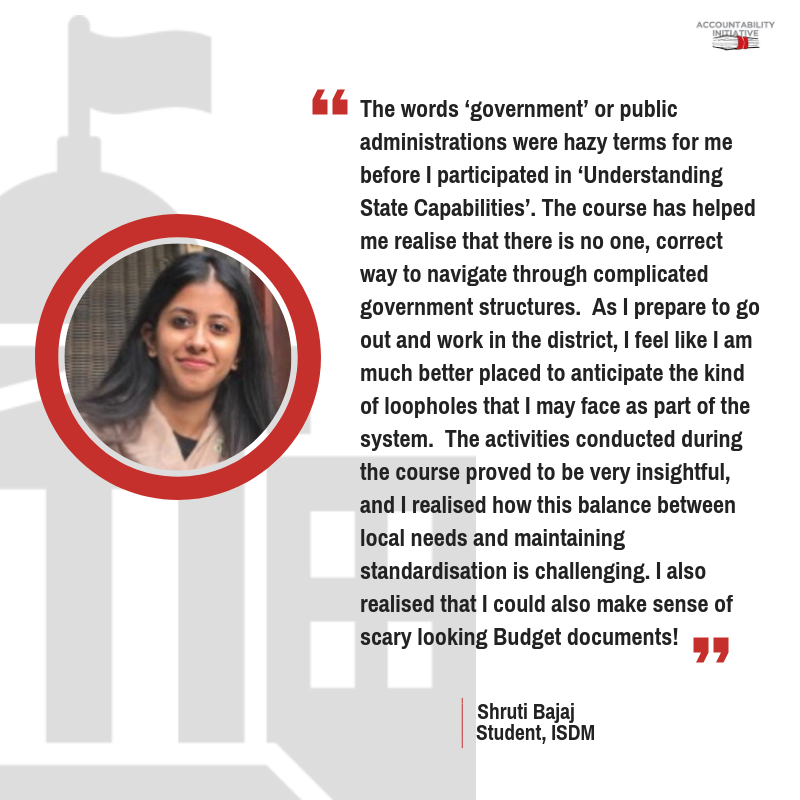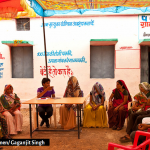
Unpacking the governance question in the classroom
22 October 2018
Are centrally sponsored schemes in India a useful apparatus for public service delivery?
How can citizens contribute to better governance?
What functions of the government should be decentralised?
These were some of the questions that saw heated debate at Accountability Initiative’s course ‘Understanding State Capabilities’ conducted at the Indian School of Development Management (ISDM). Spread over 3 packed days, the course helped students uncover complex ideas of decentralised governance, bureaucracy and its myriad challenges in India, social sector spending, government budgets, planning and social accountability.
The course early this month saw enthusiastic participation from the students at ISDM, the next generation of development leaders in the country, who often highlighted and brought out facets of their own work experience across different sectors, ably making the connection between classroom discussion and real-world practice. Some sections of the course definitely seemed to have resonated with the students, particularly the various activities spread across the course that provided students with an inimitable opportunity to engage, debate, and discuss not just with each other but also researchers from Accountability Initiative who formed the course faculty.
In an activity that aimed to bring out the facets of multiple governments in decentralisation, groups of students represented the Union, State, and local governments. A spirited debate emerged about the efficacy, efficiency, and appropriateness of different levels of government partaking in different functions required to start and run a school. Some interesting questions and insights emerged from the discussion, so much so that students could be found continuing their discussion in their smaller groups well after the end of the session and into lunch break!
Should the school curriculum be set by the Union government and standardisation be aimed for or should different states exercise their prerogative based on state specific learning levels and contexts? Who is better equipped to recruit and train teachers between the state and local governments? Should the state take up the responsibility of providing uniforms so as to achieve better economies of scale? These were only some of the critical questions raised and deliberated upon by the students, during this session.
The session on theories of decentralisation further facilitated the bringing out of nuance of the complex power play that ensues once answers to these questions are sought. The team from AI further laid out the juxtaposition of India’s commitment to decentralisation on one hand, and the limited success of fiscal decentralisation on the other.
Another fiercely debated topic was that of Centrally Sponsored Schemes. Here too, students drew from their own understanding and also built on valuable insights from the AI team. A debate erupted on whether or not CSSs strengthen state apparatus for public service delivery. A variety of perspectives came to the forefront. Some students felt that states currently lack the resources and capacity to attain satisfactory levels of service delivery in certain sectors, and thus CSSs are desirable. Others felt that such programmes were not necessarily a solution, and the focus should rather be on building capacities of state and local governments, so they can take up such initiatives at their own prerogative.
 Another session that sent the students into an excited frenzy was the session on the reading of the Budget documents, where we think we encouraged many students to begin their own quest to become successful ‘fiscal detectives’.
Another session that sent the students into an excited frenzy was the session on the reading of the Budget documents, where we think we encouraged many students to begin their own quest to become successful ‘fiscal detectives’.
These are only a few snippets of the larger story that the course aimed to convey to upcoming development practitioners. These sessions, and many more were building blocks that came together to build the larger narrative of the course around governance and accountability. Divided into 3 modules namely, ‘what does the government do’, ‘how does the government function’, and ‘what is the role of citizens in governance’, the course aims to provide a thorough on-ground perspective of the root causes of administrative and fiscal failure in India, thus positioning students as potential problem-solvers, capable of bridging these gaps.





